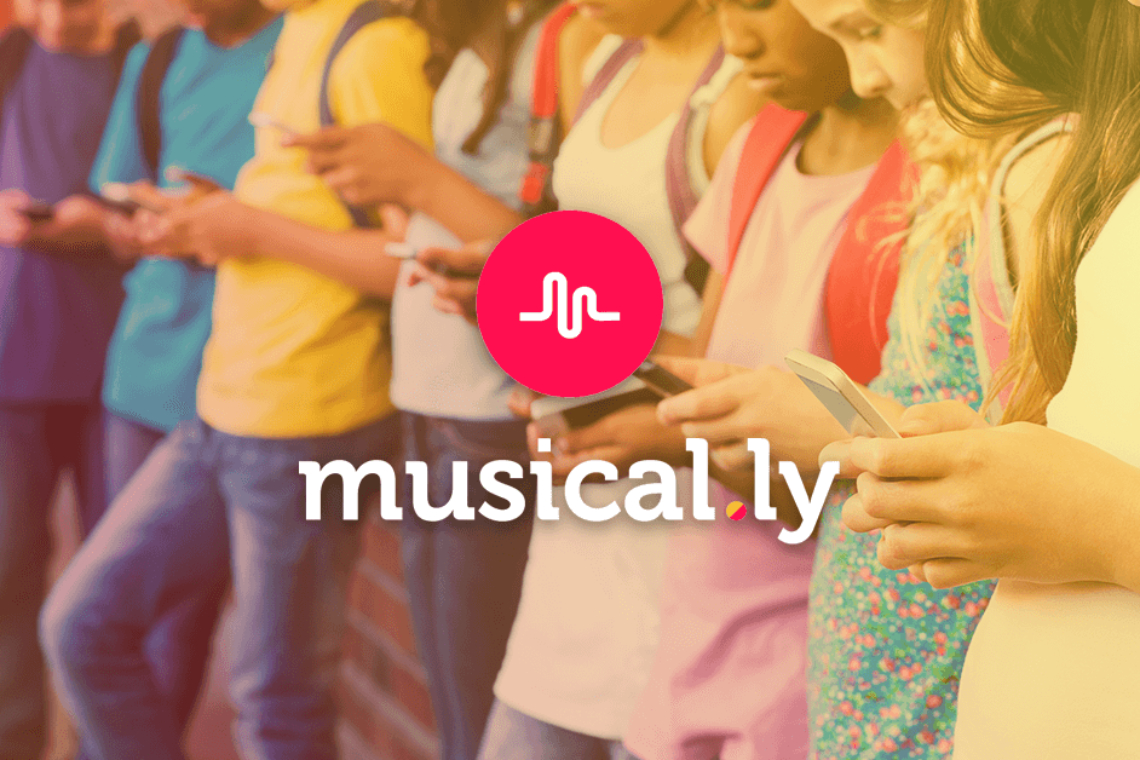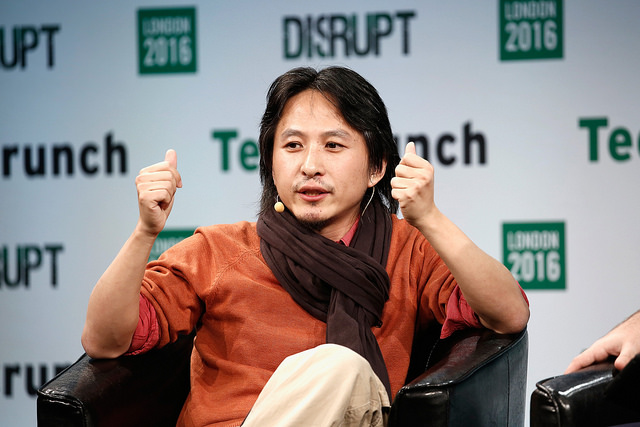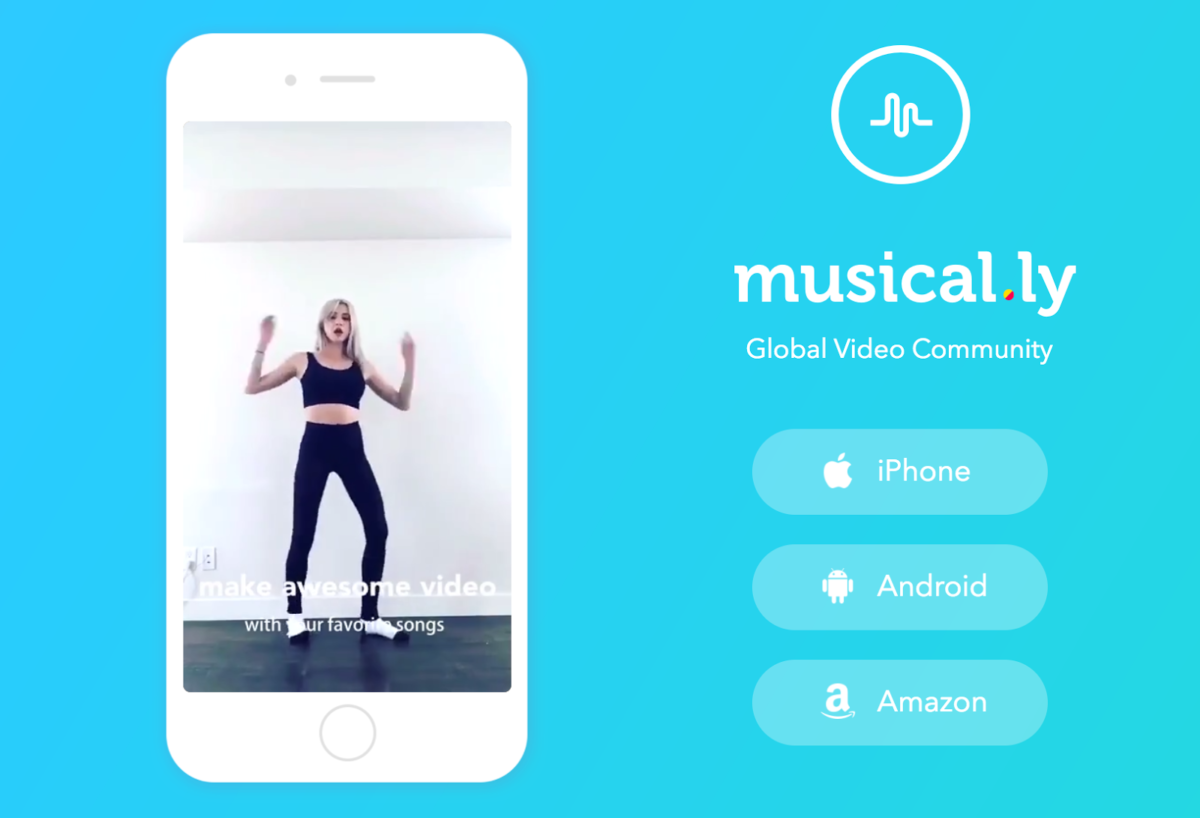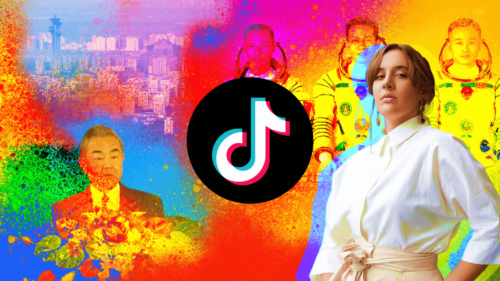Can pop music connect teens in China with the world? Musical.ly co-founder Louis Yang wants to find out
Mobile video-sharing phenomenon musical.ly was created in China, but first gained popularity in America. Now the company’s founders are crossing the Great Firewall again to reenter their home country.

The ability of social media platforms to cross China’s Great Firewall has been limited, regardless of whether they are aiming to go out or in, as the country has been increasingly tightening its control over the internet and any media businesses. The West’s biggest social media companies, such as Twitter, Facebook, and Instagram, are currently banned within China. The country’s homegrown social media giants largely remain inside; even Tencent’s all-encompassing messaging app and platform WeChat fumbled global expansion.
But for musical.ly, the lip-syncing app that has become a craze among Americans and Europeans under age 18, entry to China is not only a strategic jump to a new market, but also a homecoming. The 220-million-user-strong app was created in China by two Chinese founders, Alex Zhu and Louis Yang. Yet after its launch in 2014, the platform first rose to popularity in the U.S. Today, 80 percent of users who create and upload some 13 million short music videos to the app every day are European or American.

The China Project caught up with co-founder/co-CEO Louis Yang at the China Connect Shanghai conference in July to talk about the Santa Monica–based company’s new focus on China — a move that entails catering to the globalized youth in modern times and the necessary changes for adapting a foreign-based media company to the China market. This conversation has been edited for length and clarity.
The China Project: Musical.ly was created in China, but it first became popular in America — was this part of your original plan?
Louis: Well, musical.ly was not the original idea. We started out with the idea for an education app. We worked on that idea for one year, but one thing that we figured out is at that time, a lot of people were getting the smartphone iPhone 4. When people are owning their first, most powerful smartphone, they are most likely to use this phone for entertainment. After one year trying in the education direction, we thought, “Okay, let’s use this to try to create some fun.” So we changed the product quickly to do an experiment — what if we just provide some music in the product to allow people to quickly shoot a video with music? Will they feel very confident about the artwork they created, and if they feel excited about it, then will they share it? We created the prototype very quickly, and we tried to launch in China, in Japan, in Europe, and in the U.S. We just wanted to see — we were not sure which country was going to pick it up really quickly, but we had a gut feeling that it should be the U.S. The U.S. is a music country — everyone there is so into music — and the U.S. is the center of pop culture worldwide. We got that gut feeling, but we still decided to try it worldwide. We did not promote it, we just released it on the App Store and created some keywords for people to search for it. And the result is, yeah, in the U.S., people automatically started to pick it up.

The China Project: Do you think it’s unusual that musical.ly was created in China but then gained popularity in the U.S.?
Louis: I think it’s a random thing. We started this product by focusing on pop culture, and it just happens that if you want to focus on pop culture, if you want to focus on teens, then the best place has to be the U.S. It’s the capital of entertainment. And the technology today makes it possible that a small team anywhere on the globe can operate remotely.
But it’s worked out well for us. Once you make your place in the U.S., you have a chance to make your place in other markets. If you came from China, at that time, it was very hard to evolve into a global platform. The things that happened later actually proved our judgement. Once we got big in the U.S. and we decided to expand to Europe, it was much easier.
The China Project: So in the past few months, you’ve turned your attention to entering China. What are some of the challenges of making musical.ly popular here?
Louis: In the U.S., you have the possibility to market in an efficient way by creating word of mouth, because the competition pattern is different. There, if you are doing something innovative in an area, your competitor is going to try to create a differentiator, so both of you are competing with different characteristics. But here in China, it’s a different way — if you do something right, okay, they will follow, they will do exactly the same thing. So in China, things are so competitive. That’s one challenge. Another one is the funding. People here have a very different business logic, they think you can always get a market share very quickly by powering in with money, and once you have that, you can kick the others out. Maybe we are in a special phase of economic development, but people don’t have that patience to grow up very gradually. Everything happening in China is so fast, so people lose their patience.
The China Project: But you do have the advantage of being Chinese — would it be more difficult to enter China as a foreign media company?
Louis: That would be very difficult, you’d have the challenges of understanding the government and compliance, and then it’s very difficult to understand the culture as well, very different marketing skills are needed. We are based in the U.S., but at the same time, we operate here, we see what is happening here. We have connections here. We hope we can be the first one that can break the barrier.
The China Project: So right now, a major social and mobile trend in China is live streaming. While musical.ly itself is not live, it is also a mobile video-sharing platform driven by individual users providing content. What would you say differentiates musical.ly’s success in America from live streaming’s success in China?

Louis: In China, beautiful girls get a lot of love and tipping from live streaming, but the most successful person on our platform is actually a dad who is 45 years old living in Hawaii. This guy is earning…well, maybe it’s not good to share the number…but he is earning a lot. Surprisingly, people like his crazy ideas, they like how he engages them and asks them for ideas for what he should do next. It’s very unlikely to be working here in China if you don’t have a beautiful face and you are just a 45-year-old guy. So there is a difference in culture. And, in the U.S., they monetize by partnering with a brand, whereas our top “musers” are monetizing by helping brands to market to teens, it’s not through live-streaming tips.
The China Project: Will you have to change the app’s functionality or how you engage users in China?
Louis: The market is different. I think the teenagers are different, but not that different, especially Generation Z [millennials]. They are listening to the same artists as the Western kids, they are watching the same Hollywood movies as the Western kids. So the heart of the product will stay the same when we come to China, but the way that we’re marketing, the way that we have our campaigns will be different. In China, we’ll rely more on influencers, celebrities — the market is so competitive here. In the U.S., we actually relied more on word of mouth. We will also localize the product a little bit — you need to be more compliant with local government requirements here, and to integrate into the local social media. In the U.S., we connect to Instagram, Facebook. Here, you need to be fully integrated into Weibo and Weixin [WeChat], and also we need to localize our content by working with local artists.

The China Project: So what about Lady Gaga, who is banned from performing live in China — is she allowed on your app in China?
Louis: I don’t think the songs are blocked — the music is still available. It’s just sensitive to have the artists perform here. As a song service, we don’t block.
The China Project: So you mentioned that members of Generation Z have similar music tastes across the world, but are there also differences that you need to be aware of as you enter China?
Louis: In coming back to China, the one thing that we have to decide is target age. In the U.S., we grew first in middle school and then high school, but when we come back to China, we have to think that maybe we should start in university. The middle school and high school kids, they have so much homework to do. I have a cousin who studies 12 hours every day. How could he have the time to spend time in musical.ly to do something creative?
The China Project: What is the goal for coming into China?
Louis: It’s the dream to be a global platform to connect teens all over the world. If that is the dream to pursue, we have to be in China, we have to be in Asia. We see that as a global platform, we can be the one that connects the community and the industry. Today, the internet has helped us to break down the barriers between culture, and that’s also a special experience. Sometimes you hear people screaming, “Ah, I made this video and people are typing back these characters that I don’t understand” — that’s a good feeling.





